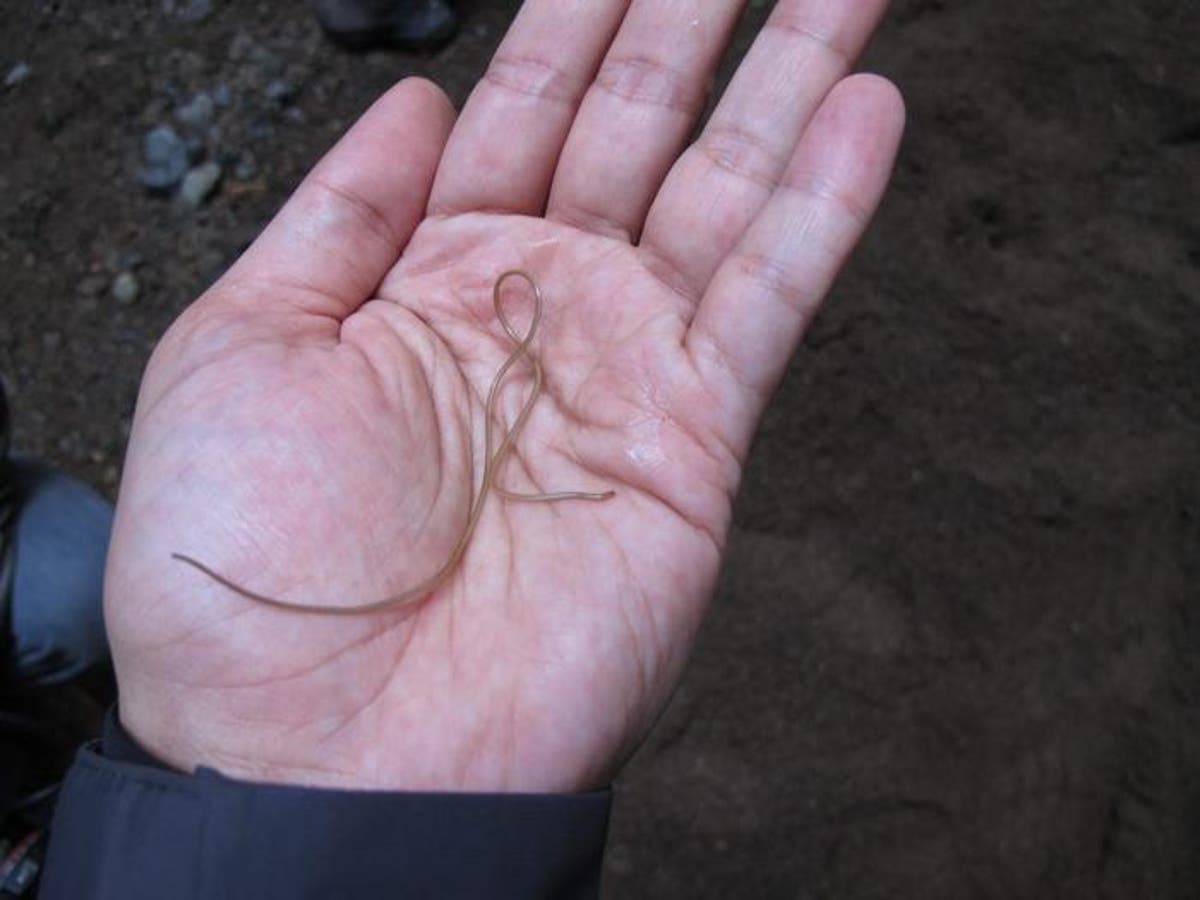A live, eight-centimetre-long worm was removed from the brain of a 64-year-old Australian woman by doctors in the world’s first case of a new kind of parasitic infection in humans.
The roundworm – Ophidascaris robertsi – was still “alive and wriggling” when it was surgically pulled out of the patient’s brain, according to a new study in the journal Emerging Infectious Diseases.
Researchers, including those from the Australian National University (ANU), suspect the worm’s larvae were also present in other organs in the woman’s body, including the lungs and liver.
“This is the first-ever human case of Ophidascaris to be described in the world,” study co-author Sanjaya Senanayake, a leading infectious disease expert at ANU, said in a statement.
The new finding, according to the experts, is also the first case of a fully grown Ophidascaris worm living in the brain of any mammalian species, “human or otherwise”.
This worm is usually common to carpet pythons.
Its larvae are usually found in small mammals and marsupials, which are then eaten by the python, allowing the life cycle to complete itself in the snake.
Researchers said the worm typically lives in a python’s oesophagus and stomach and sheds its eggs in the host’s faeces.
Humans would be considered accidental hosts of Ophidascaris robertsi larvae, they said.
In the latest case, the woman from southeastern New South Wales in Australia likely caught the roundworm after collecting a type of native grass, called Warrigal greens, beside a lake near where she lived.
This is where a python may have likely shed the parasite through its faeces.
Roundworms are known to be resilient and capable of thriving in a wide range of environments.
They are known to cause stomach pain, vomiting, diarrhoea, appetite and weight loss, fever, and tiredness in humans.
In the new case study, researchers said the woman used Warrigal greens for cooking and was likely infected with the parasite from touching the native grass or after eating the greens.
Doctors said the woman’s symptoms first started in January 2021. She first developed abdominal pain and diarrhoea, “followed by fever, cough and shortness of breath”.
The 64-year-old was first admitted to a local hospital in late January 2021 after suffering three weeks of abdominal pain and diarrhoea, followed by a constant dry cough, fever and night sweats.
They said these symptoms were likely due to the migration of roundworm larvae from the bowel and into other organs such as the liver and the lungs.
Detection of ‘Ophidascaris robertsi’ nematode infection in a 64-year-old woman from southeastern New South Wales, Australia
(Emerging Infectious Diseases)
When respiratory samples and a lung biopsy were performed, no parasites were identified in these tissue specimens.
“At that time, trying to identify the microscopic larvae, which had never previously been identified as causing human infection, was a bit like trying to find a needle in a haystack,” said Karina Kennedy, another author of the study from Canberra Hospital.
By 2022, the woman began experiencing subtle changes in her memory and thought processing.
By this time, doctors said the patient was experiencing forgetfulness and depression, prompting an MRI scan that showed an atypical tissue injury within the right frontal lobe of the brain.
It was then that a neurosurgeon at the Canberra hospital found the unexpected eight-centimetre roundworm, that was further confirmed by parasitology experts and molecular studies.
Researchers cautioned that the case highlights the danger of diseases and infections passing from animals to humans in a world where the habitats have increasingly come to overlap with each other.
“There have been about 30 new infections in the world in the last 30 years. Of the emerging infections globally, about 75 percent are zoonotic, meaning there has been transmission from the animal world to the human world. This includes coronaviruses,” Dr Senanayake said.
“People who garden or forage for food should wash their hands after gardening and touching foraged products,” Dr Kennedy said.
“Any food used for salads or cooking should also be thoroughly washed, and kitchen surfaces and cutting boards, wiped downed and cleaned after use.”
Denial of responsibility! TechCodex is an automatic aggregator of the all world’s media. In each content, the hyperlink to the primary source is specified. All trademarks belong to their rightful owners, and all materials to their authors. For any complaint, please reach us at – [email protected]. We will take necessary action within 24 hours.

Jessica Irvine is a tech enthusiast specializing in gadgets. From smart home devices to cutting-edge electronics, Jessica explores the world of consumer tech, offering readers comprehensive reviews, hands-on experiences, and expert insights into the coolest and most innovative gadgets on the market.


